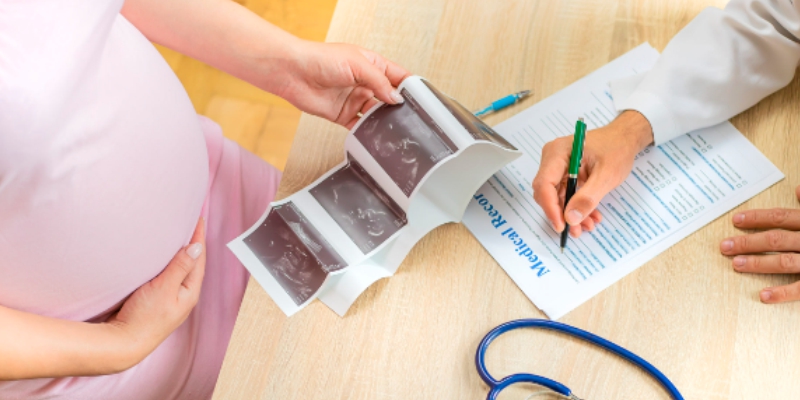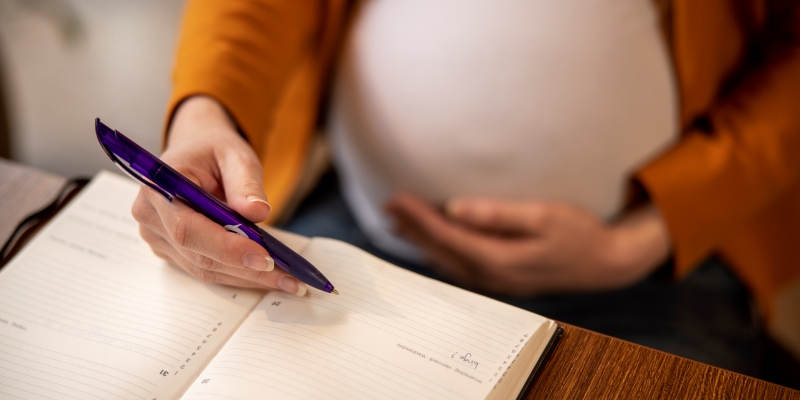Author: Dr. Kiran Yadav
MBBS, DGO, DNB Fellowship in laparoscopy Obstetrics and Gynaecology
Senior Consultant – Obstetrician & Gynaecology
Demystifying VBAC – A Guide for Women Considering Vaginal Birth After Cesarean:
The Rising Interest in VBAC in India: An Overview
The landscape of childbirth in India is witnessing a significant transformation with the increasing interest in Vaginal Birth After Cesarean (VBAC). According to Dr. Kiran Yadav, MBBS, DGO, DNB Fellowship in laparoscopy Obstetrics and Gynaecology, Senior Consultant – Obstetrician & Gynaecology, This option, which was once less considered, is now emerging as a preferred choice for many expectant mothers. VBAC presents an opportunity for women who have previously undergone a cesarean section to experience vaginal delivery in their subsequent pregnancies. This shift reflects a growing awareness about the potential benefits of VBAC and a desire among women to explore alternative birthing options. This article aims to demystify VBAC, providing a comprehensive guide for Indian women contemplating this route for childbirth.
Understanding VBAC’s Growing Popularity
The trend towards VBAC is indicative of a broader change in attitudes towards childbirth in India. Women are becoming more informed and are actively seeking out options that align with their personal health and birthing preferences. VBAC is being seen not just as a medical procedure, but as a part of a more holistic approach to childbirth that emphasizes the mother’s choice and autonomy. This growing trend is supported by medical advancements and a better understanding of the risks and benefits associated with VBAC. In this article, we delve into the various aspects of VBAC, offering insights and information to help women in India make informed decisions about their childbirth options.
Understanding VBAC
Defining VBAC and Its Relevance Vaginal Birth After Cesarean (VBAC) refers to giving birth vaginally after having a previous birth through a cesarean section. This option challenges the traditional notion that once a woman has a C-section, all subsequent deliveries must also be surgical (repeat LSCS). VBAC offers a possibility for women to experience natural childbirth, which can have significant benefits for both the mother and the child. The process involves careful monitoring and assessment to ensure the safety of both the mother and the baby. Understanding VBAC is essential for any woman considering this option, as it involves weighing the benefits against the potential risks.
Contrasting VBAC with Repeat Cesarean Sections
While a cesarean section is a common and safe method of delivering a baby, it is a major abdominal surgery and comes with certain risks and a longer recovery period. In contrast, VBAC allows women to avoid another surgical procedure, potentially leading to a quicker recovery and less time spent in the hospital. However, VBAC is not suitable for everyone and requires a thorough evaluation by healthcare professionals. Women considering VBAC should understand the factors that influence its feasibility, such as the type of incision made in the previous cesarean, indication of cesarean ,position of placenta and the overall health of the mother.
Benefits of VBAC
Physical and Emotional Benefits of VBAC .One of the most significant advantages of VBAC is the avoidance of major abdominal surgery, that is a repeat cesarean section. This can lead to a shorter hospital stay, quicker recovery, and less physical discomfort post-delivery. Additionally, VBAC reduces the risks associated with multiple cesarean deliveries, such as bladder or bowel injuries and complications in future pregnancies. Emotionally, VBAC can offer a more satisfying birth experience for many women. It provides them with an opportunity to actively participate in the birthing process, which can be empowering and positively impact their overall well-being.
Long-term Health Benefits for Mother and Child
VBAC not only benefits the mother in the short term but also has long-term health implications. Women who undergo VBAC have a lower risk of hemorrhage and infection compared to those who have repeat C-sections. Furthermore, VBAC can be beneficial for the child, as vaginal births are associated with a lower risk of respiratory problems and other complications that can occur more frequently in babies delivered via C-section. The opportunity for immediate skin-to-skin contact and breastfeeding is often more readily available following a vaginal birth, promoting early bonding and potential long-term benefits for the baby’s immune system and development.
Risks Associated with VBAC
Understanding the Challenges of VBAC. While VBAC offers several benefits, it’s important to acknowledge the associated risks to make an informed decision. The primary concern is the risk of uterine rupture, a rare but serious complication where the cesarean scar on the uterus tears during labor. Other potential risks include infection, injury to the mother or baby, and the possibility of an emergency C-section if complications arise. The decision to attempt a VBAC should be based on a thorough evaluation of these risks in consultation with healthcare professionals, considering the mother’s overall health, the reason for the previous C-section, and the conditions of the current pregnancy.
VBAC Risks in the Indian Context
In India, the risks associated with VBAC need to be understood in the context of the healthcare system’s capabilities and the individual’s health profile. Factors such as the availability of emergency care, the proximity to a well-equipped medical facility, and the expertise of the healthcare provider play crucial roles in managing these risks. Women should discuss their concerns and understand the specific risks related to their situation, including the likelihood of success and the potential for complications. This section will provide detailed information on these risks, particularly focusing on the Indian healthcare scenario.
Candidacy for VBAC
Criteria for VBAC Eligibility in India Determining who is a good candidate for VBAC is critical for ensuring the safety of both mother and baby. In India, the eligibility criteria for VBAC are similar to global standards but must be contextualized to local healthcare practices. Generally, women with a low-transverse incision from a previous cesarean, without a history of uterine rupture or certain types of uterine surgery, are considered potential candidates. Other factors include the reason for the previous C-section, the interval between pregnancies, and the mother’s overall health and pregnancy conditions. This section will elaborate on these criteria, helping Indian women understand if VBAC is a suitable option for them.
Assessing Individual Suitability for VBAC
Each woman’s situation is unique, and the decision to pursue VBAC should be made on an individual basis. Factors such as the type of previous cesarean incision, the number of previous C-sections, and the presence of any complicating factors like high maternal age or high birth weight of the baby are taken into account. Consulting with healthcare providers who can evaluate these factors and provide personalized advice is essential. This section will guide women through the process of assessing their suitability for VBAC, emphasizing the importance of a personalized approach in the Indian context.
Preparing for VBAC
Key Steps for a Successful VBAC Experience Preparation for VBAC involves several key steps, beginning with the selection of a healthcare provider experienced in managing VBAC cases. This includes finding a medical facility equipped to handle both VBAC and emergency C-sections. Women should ensure their complete medical history, including details of the previous cesarean, is available to their healthcare provider. Discussing VBAC during prenatal visits allows for a comprehensive assessment and formulation of a birthing plan that considers the mother’s preferences and the safety of both mother and baby.
The Role of Informed Decision-making and Support
The journey towards a successful VBAC is also supported by informed decision-making and a strong support system. Women should educate themselves about the process, potential risks, and benefits of VBAC. Support from family, friends, and healthcare providers is crucial. This section will provide practical advice on preparing for VBAC, including tips on choosing the right healthcare provider and facility, and the importance of emotional and informational support throughout the pregnancy.
VBAC in India
A Path to Empowered Childbirth In conclusion, this comprehensive exploration of VBAC in India serves as a valuable resource for women considering this option. From understanding what VBAC entails to its benefits, risks, and the inspiring stories of those who have experienced it, the aim is to provide a holistic view. The decision to opt for VBAC is deeply personal and should be made after careful consideration and consultation with healthcare providers. This article hopes to empower women with the information and insights they need to make informed choices about their childbirth experiences, ultimately contributing to their well-being and that of their families.
Dr. Kiran Yadav will respond to your query as soon as possible. For emergencies please call and reach Motherhood Hospital, Gurgaon.
At Motherhood Hospitals, we have a team of experienced supers specialists backed by the latest infrastructure and facilities. We have the best gynaecologist in Gurgaon . We are experts in handling complex deliveries, gynecological, and other surgeries including a range of laparoscopic surgeries.
Do make an appointment with the best woman care hospital in Gurgaon at a center closest to you. Please meet with our doctors who will carry out the required investigations, diagnose the issue, and recommend the most appropriate treatment, enabling you to lead an active life.
If you wish to get in touch with Dr. Kiran Yadav, please book your appointment here


 Toll Free Number
Toll Free Number
















